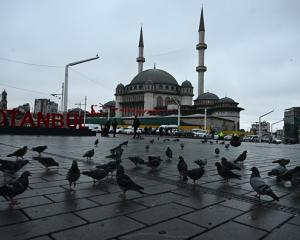Opposition activists say Syrian authorities are breaking their promises to withdraw troops from the streets of strife-torn towns, contradicting statements by Arab League peace monitors that government forces have pulled back.
An Arab League mission arrived in Syria last week to verify whether the government was implementing a peace plan under which it agreed to scale back its military presence and free thousands of prisoners detained since the uprising against President Bashar al-Assad began last March.
League Secretary General Nabil Elaraby said in Cairo the monitors had reported back that state forces had withdrawn from residential areas. The mission was ensuring a halt to bloodshed and had secured the release of about 3500 prisoners, he said.
"We are not seeing the release of detainees or the true removal of a military presence from the streets," said Rami Abdelrahman, head of the British-based Syrian Observatory for Human Rights.
"Army tanks have been replaced with police armoured personnel carriers that still have the capability to shoot heavy weaponry."
Videos uploaded by activists on the Internet showed armoured vehicles hidden behind high dirt barriers.
"Nabil Elaraby, you are in Cairo and we're in Baba Amr. Here are the tanks and there are your monitors," said one activist in a video uploaded on the Internet which showed a team of orange-vested men who appeared to be League monitors standing near an armoured vehicle behind a barrier.
Such footage is impossible for Reuters to verify and Syria has barred entry to most foreign journalists.
Opposition groups in the cities of Idlib in the north, central Homs and Deraa in the south said the army had hidden armour in dugouts and replaced tanks with blue armoured vehicles said to belong to police forces.
Washington accused the government of trying to stoke up more violence to justify retaliation.
The Syrian government rejected accusations from Washington that it was failing to live up to its agreement with the Arab League.
"Such a statement is offensive to the Arab League ... because it is a blatant interference in the core of its work, the sovereignty of its states and an unjustified attempt to internationalize (the Syria crisis)," Foreign Ministry spokesman Jihad Makdesi said in a statement.
The mission is expected to report on its first week of work by the end of this week.
French Foreign Minister Alain Juppe called Syrian repression "savage" and talked of the possibility of U.N. action.
"The Arab League has the merit of having taken the initiative, but Arab League observers cannot allow themselves to be manipulated by the regime as the regime is trying to do," he said in Lisbon.
"We hope the Arab League has clear objectives and if these objectives are not met we will work with the (U.N.) Security Council so it pronounces itself about the Syrian situation."
Activists said monitors visited the main prison in Homs. They were greeted with chants of "freedom, freedom" and "the people want the fall of the regime", the activists said, citing leaked messages from detainees and guards.
"The security forces moved some of the detainees but the numbers are so huge they couldn't move them all," said Homs activist Abu Rami. "They moved some detainees to military bases and moved away the ones who are in bad health."
Rights groups say there may be more than 30,000 in prison and activists put the death toll since the team's arrival last week at between 130 and 390 people.
More than 5,000 people have been killed in the crackdown on protests, according to the United Nations. Damascus says it is fighting Islamist militants, controlled from abroad, who have killed at least 2,000 of Assad's forces.
Colonel Riad al-Asaad, head of the rebel Free Syrian Army, pledged this week to escalate operations against Assad's forces in response to what he said was the unsatisfactory performance of the Arab League monitors.
Since November rebel fighters have ambushed military convoys, attacked an airbase, seized army checkpoints and launched symbolic attacks on an intelligence centre and an office of the ruling Baath Party in the heart of Damascus.












